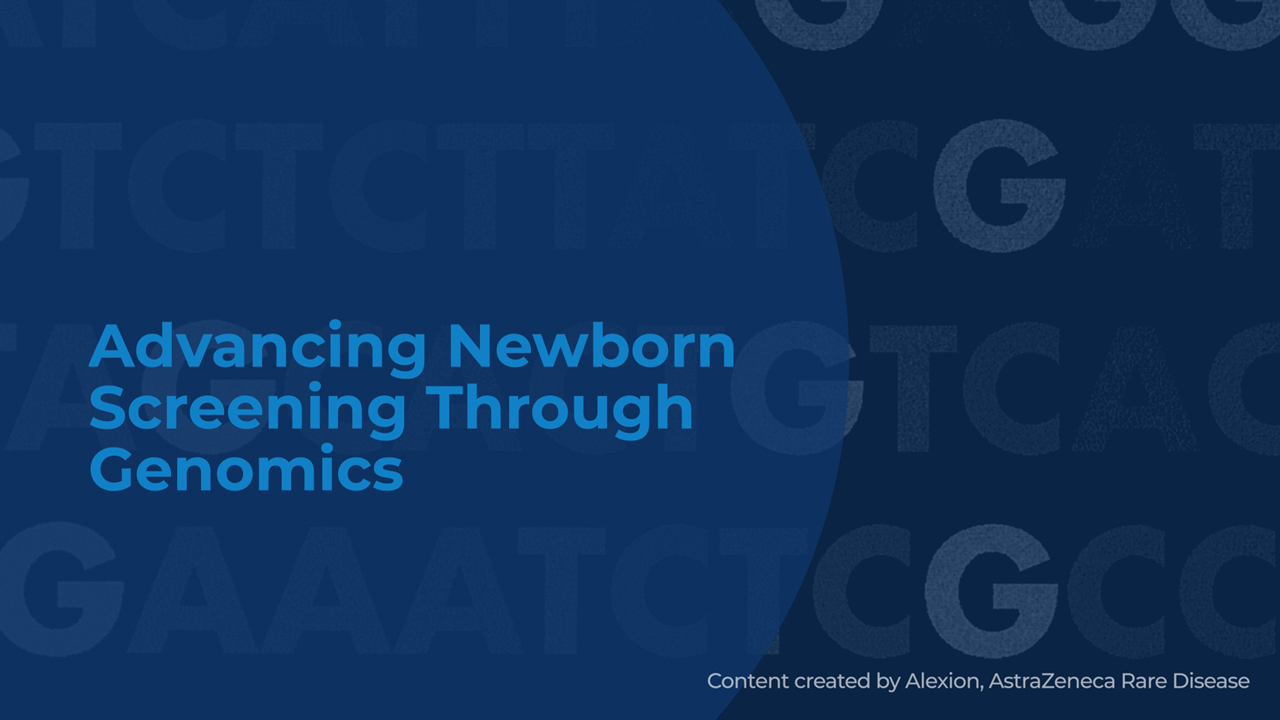- Home
- News Centre Resources
- Genomic Innovation to Support Newborn Screening of Rare Diseases
Genomic Innovation to Support Newborn Screening of Rare Diseases

Written by: Tom Defay, Deputy Head of Diagnostics Strategy & Development
Newborn screening has been one of medicine's greatest success stories, improving the identification of severe genetic disorders before symptoms appear and enabling lifesaving early therapeutic interventions since the late 1960s. However, despite these achievements, newborn screening has lagged behind the genomic revolution driven by scientists mapping the human genome and the rapid advancements in treatment options. Today, while more than 10,000 rare diseases are known, recommended newborn screening panels cover only about 40 core conditions.1,2 This gap underscores the need for innovative approaches to expand the reach of newborn screening.

An Innovative Approach: BeginNGS® and Whole Genome Sequencing
To address this gap, the BeginNGS® (Begin Newborn Genome Sequencing) program pioneers a new approach to newborn screening by seeking to accelerate adoption of whole genome sequencing. Led by Rady Children’s Institute for Genomic Medicine and developed through a consortium including Alexion, AstraZeneca Rare Disease as a founding partner, the goal is to identify infants for thousands of genetic diseases for which therapies exist, before symptoms arise.
Yet, implementing whole genome sequencing as a screening tool introduces new complexities. A major challenge in genomic newborn screening is knowing if a specific genetic change actually leads to disease. Some identified genetic changes have low penetrance, meaning they may only cause disease in a small percentage of people who carry them. This can lead to false alarms, as a newborn could be flagged as being at risk for a disease even though they may never develop symptoms.
In light of this challenge, Alexion and hospital partners are researching ways to improve the accuracy of genomic newborn screening. They are using AI (artificial intelligence) to analyse large, multi-ancestry genetic databases, helping researchers better identify which genetic changes are linked to disease and reduce unnecessary false alarms. This innovative use of AI and diverse data sources is already showing promising results.
A recent study showed that by analysing multi-ancestry databases, genomic newborn screening was much more accurate, reducing false alarms by 97%.3 As the field evolves, continued improvements of processes is essential for making genomic newborn screening clinically viable and ensuring families receive accurate, actionable information.
Expanding Early Intervention Opportunities to Transform Rare Disease Care
The promise of this innovation extends beyond diagnosis—it enables early therapeutic action. As breakthrough treatments become available for rare diseases that were once considered untreatable, being able to identify affected infants before symptoms appear becomes crucial for achieving the best possible outcomes. Through programs like BeginNGS®, newborn screening can transform the diagnostic journey for families by enabling early action that makes a meaningful difference.
References
- GlobalGenes.org. Rare disease facts. Available here. Accessed August 2025.
- HRSA.gov. Health Resources and Services Administration. Available here. Accessed August 2025.
- Kingsmore SF, et al. Prequalification of genome-based newborn screening for severe childhood genetic diseases through federated training based on purifying hyperselection. Am J Hum Genet. 2024;111(12):2618-2642.
Share This Page
More articles you may like

Article • February 03, 2026
Advancing Policy, Partnerships and Progress for the Rare Disease Community
As we reflect ahead of Rare Disease Day, we reaffirm our commitment to pioneering innovations for the rare disease community and to shortening the time to diagnosis, improving access to lifesaving care, and advancing health care policies that support patients and families.

Clinical Trials • October 28, 2025
Shaping the future of R&D with real world insights into rare disease
Studying a rare disease often involves working with fragmented information, much like piecing together scattered pages of different books, each offering part of the story but rarely forming a complete picture. Researchers face this challenge due to small, often underdiagnosed, patient populations and limited understanding of how these diseases progress over time.

Thought Leadership • June 11, 2025
Paving Regulatory Pathways in Rare Disease
Many rare disease medicines are often a first of their kind, and a clear roadmap for their development and approval does not exist. Navigating the complex and sometimes unprecedented regulatory environment for rare disease requires innovation, collaboration and a patient-first mindset.

Media [News] • April 10, 2025
Advancing Rare Disease Research Through Patient-Centric Trial Design
As Head of Development, Regulatory and Safety at Alexion, Gianluca Pirozzi channels his life’s experience with rare disease to inform his work at Alexion, ensuring clinical programmes are fueled by a patient-focused mindset.

Article • February 24, 2025
Supporting Patients on Rare Disease Day, and Every Day
Rare Disease Day recognizes the 400 million people worldwide – and 30 million in the United States – who are living with a rare disease. While significant progress has been made in understanding rare diseases and developing treatments, the need for continued awareness, research and support is as great as ever.

Patient Support • February 05, 2025
Addressing the Unmet Needs of the Amyloidosis Community
We spoke with Cristina Quarta, Executive Medical Director, about a group of rare diseases known as amyloidosis, the medical needs within this community and how her work as a cardiologist shapes her approach to research and development (R&D) for rare cardiac conditions.

Patient Support • September 23, 2024
Shortening the Path to Diagnosis in Rare Disease
With 10,000 known rare diseases defined today, the path to diagnosis can often resemble a puzzle, with physicians as detectives searching for clues. Many physicians never encounter a rare disease beyond the pages of their medical school textbooks.

Research and Development • September 18, 2024
Getting to know Nick France, an Alexion R&D Leading Voice
To create meaningful advances in rare disease research, it takes an innovative culture, strong collaboration, and a patient-centric vision for delivering transformational solutions. At Alexion, these pillars are important to successfully develop impactful medicines for patients.

Patient Support • June 25, 2024
Getting to know Chathuri Daluwatte, an Alexion R&D Leading Voice
Artificial Intelligence (AI) is rapidly advancing and has the potential to have a transformative impact on clinical research and development (R&D).
